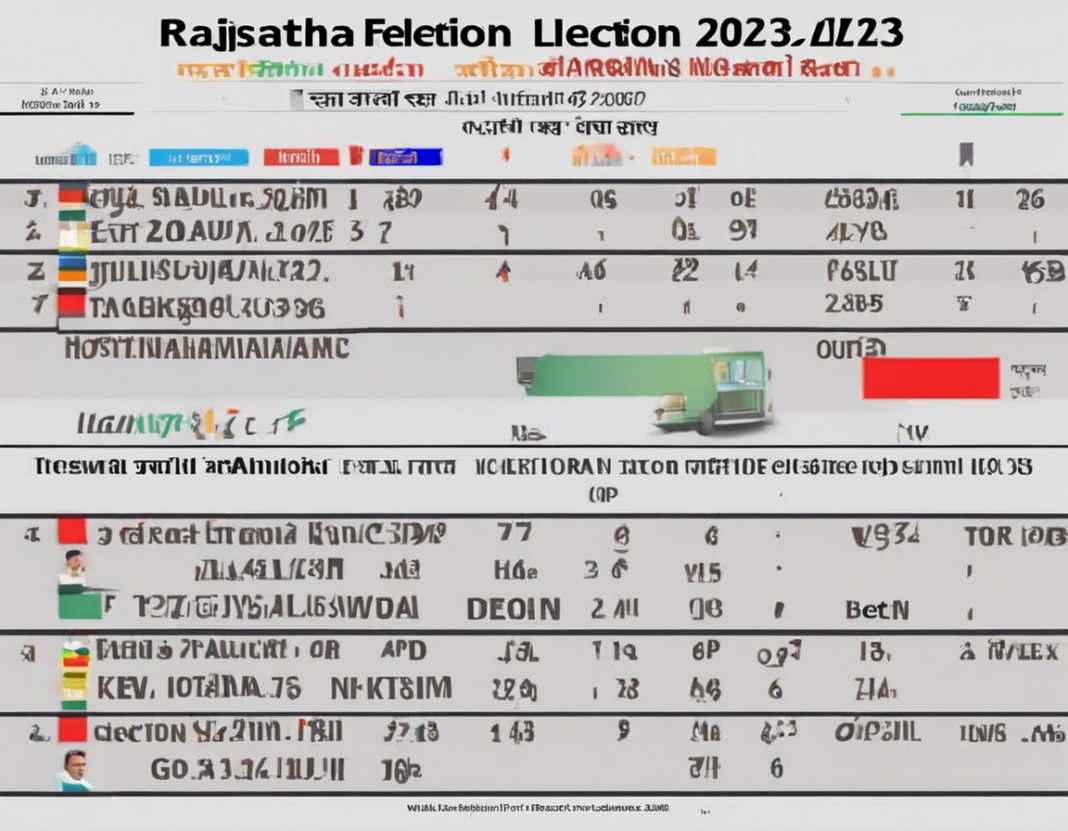The recent Rajasthan Election of 2023 has been a topic of much interest and debate. As the results pour in, it is crucial to analyze the various factors that have influenced the outcome of the election. In this comprehensive article, we will delve into the key aspects that have shaped the results of the Rajasthan Election 2023.
Factors Influencing the Election Results
1. Political Landscape
The political landscape of Rajasthan plays a vital role in determining the election results. The performance of political parties, alliances, and individual candidates can sway the outcome significantly.
2. Economic Situation
The economic situation of the state is another crucial factor. Issues such as unemployment, inflation, and overall economic growth can impact voter sentiments and influence their choice at the polls.
3. Social Dynamics
Social factors, including caste equations, religious considerations, and regional sentiments, often play a pivotal role in shaping election outcomes in Rajasthan. Understanding these dynamics is essential to deciphering the election results.
4. Campaign Strategies
The campaign strategies employed by political parties and candidates can also have a significant impact on the results. Factors such as the messaging, outreach, and visibility of the campaigns can influence voter perceptions.
5. Demographic Trends
Demographic trends, such as the youth population, urban-rural divide, and gender dynamics, can influence voter behavior and shape the election results in Rajasthan.
Key Takeaways from the Election Results
1. Major Upsets
The election results might have witnessed some major upsets, with incumbent parties losing ground in certain regions or constituencies.
2. Shifts in Power
The results of the Rajasthan Election 2023 may indicate a significant shift in power dynamics within the state, with new players emerging on the political scene.
3. Impact on Policies
The election outcomes are likely to have a substantial impact on the policies and governance of Rajasthan, with the winning party or coalition setting the agenda for the state.
4. National Implications
The results of the Rajasthan Election could have broader national implications, signaling trends that might influence upcoming elections in other states or at the national level.
5. Potential Alliances
The election results could pave the way for new alliances or realignments in Rajasthan politics, with parties exploring new partnerships based on the outcome of the polls.
Frequently Asked Questions (FAQs)
1. Q: What were the key issues that influenced the Rajasthan Election 2023 results?
A: The key issues that impacted the election results included economic concerns, social dynamics, campaign strategies, and demographic trends.
2. Q: How did the incumbent party perform in the Rajasthan Election 2023?
A: The performance of the incumbent party varied across different regions, with potential upsets indicating a mixed outcome for the ruling party.
3. Q: What role did alliances play in the election results?
A: Alliances among political parties played a significant role in shaping the election results, with coalition dynamics impacting the final outcome.
4. Q: What are the potential policy implications of the Rajasthan Election 2023 results?
A: The election results could lead to significant policy shifts in areas such as governance, economic development, social welfare, and infrastructure projects.
5. Q: How might the Rajasthan Election results impact national politics?
A: The outcomes of the Rajasthan Election could influence national political narratives, alliances, and strategies as parties gear up for upcoming elections.
In conclusion, analyzing the results of the Rajasthan Election 2023 requires a nuanced understanding of the political, economic, social, and demographic factors at play. The outcome of the election is likely to have far-reaching implications for the state and potentially shape the broader political landscape of the country.









